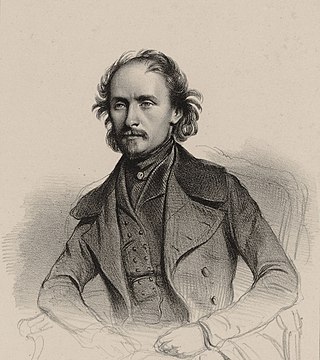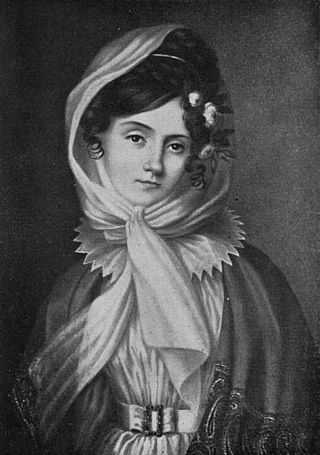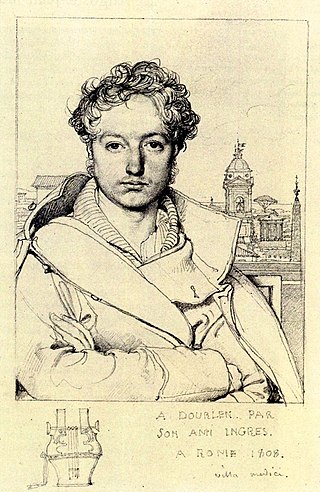Related Research Articles

Henryk Wieniawski was a Polish virtuoso violinist, composer and pedagogue, who is regarded amongst the most distinguished violinists in history. His younger brother Józef Wieniawski and nephew Adam Tadeusz Wieniawski were also accomplished musicians, as was his daughter Régine, who became a naturalised British subject upon marrying into the peerage and wrote music under the name Poldowski.

Henri Jérôme Bertini was a French classical composer and pianist. He was born into a family of musicians and attracted the attention of François-Joseph Fétis when he toured Europe as a child prodigy. As an adult he was admired both as a soloist and as a chamber musician; it was said that he played with Johann Nepomuk Hummel's simplicity and elegance without sacrificing the brilliance of the instrument. As a composer he had an original style which was rich in musical ideas, attractive melodies, and effortless harmonies. In 1856, he retired from the musical scene and settled in the Dauphiné in south-east France.

Maria Szymanowska was a Polish composer and one of the first professional virtuoso pianists of the 19th century. She toured extensively throughout Europe, especially in the 1820s, before settling permanently in St. Petersburg. In the Russian imperial capital, she composed for the court, gave concerts, taught music, and ran an influential salon.

Aleksander Zarzycki was a Polish pianist, composer and conductor. Author of piano and violin compositions, mazurkas, polonaises, krakowiaks, and songs.
Antoine de Lhoyer [L'Hoyer] was a French virtuoso classical guitarist and an eminent early romantic composer of mainly chamber music featuring the classical guitar. Lhoyer also had a notable military career; he was an elite member of the Gardes du Corps du Roi, a Knight of the Order of St John and a Knight of the Order of St Louis. His music fell into obscurity even before his impoverished death at the age of 83 in Paris.

Désiré Magnus was a Belgian concert pianist, teacher and composer of salon music who published under the pseudonym D. Magnus.
Johann August Just was a German keyboard player, violinist and composer.

Victor Charles Paul Dourlen was a French composer and music teacher at the Conservatoire de Paris during the first half of the nineteenth century. He is primarily known as a theorist on account of his treatises on harmony, based on the methods of Charles Simon Catel, which were widely used as reference works, especially his Traité d'harmonie, the Traité d'accompagnement pratique, and his Méthode élémentaire pour le pianoforte.

Jean-Amédée Lefroid de Méreaux was a French composer, pianist, piano teacher, musicologist and music critic. He is best-known for his 60 Grandes Études, Op. 63.
Clément Loret was an organist, music educator, and composer of Belgian origin, French naturalized.
Jean-Chrisostome Hess was one of the most prolific French composers of salon music for the piano as well as transcriptions of popular songs and arias from operas. He was also active as an organist, pianist, and teacher.
Paul Friedrich Struck was a German-Austrian classical composer.
Jean-Maurice Bourges, distinguished musical critic, translator and composer who came early to Paris to study composition under Auguste Barbereau. He became joint-editor for Revue et gazette musicale de Paris from 1839, which acquired an excellent reputation in great measure owing to him.
Marc Burty was a French composer and music teacher for Lycée de Lyon who also went by the pseudonym, Georges Bull, in some of his works. He became interested in the harmonium after building a relationship with Alfred Lefébure-Wély in Paris who introduced him to the instruments, in which Burty later taught the instrument in the Lyon-based institution. He mainly wrote music pieces for the piano and were published in Paris between 1859 and 1900.
References
- ↑ List sourced from Kijas, Anna E. (2010). Maria Szymanowska (1789-1831): A Bio-Bibliography, pp. 148 - 149 (Classified List of Works). Lanham: Scarecrow Press.